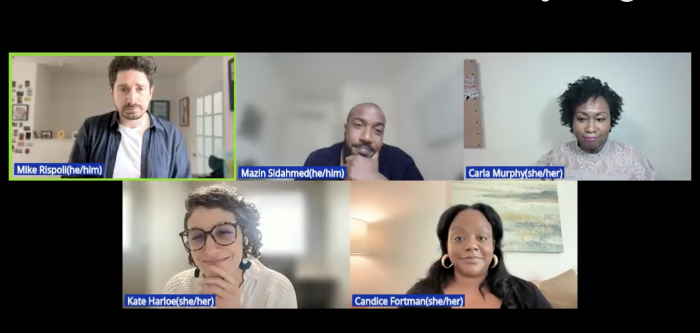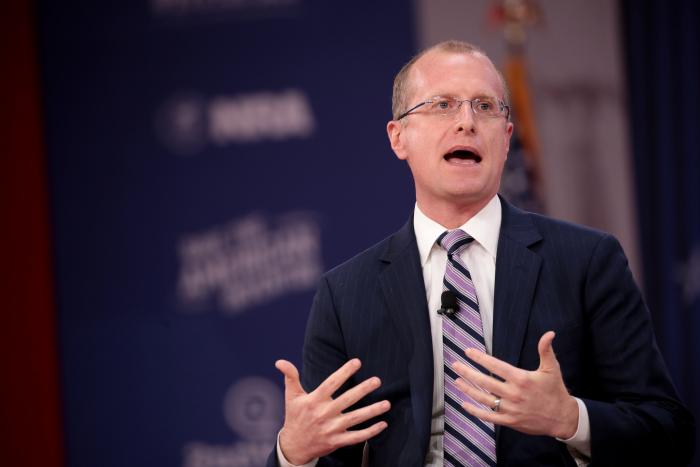Disconnected During a Pandemic: Why ISPs Must Do Even More

As our communities retreat into quarantine, isolation and social distancing to contain the spread of the novel coronavirus (COVID-19), the systems we use to connect and communicate have never been more important.
But not everyone has equitable access to those systems.
Schools across the country are shutting down, shifting learning from physical classroom to digital cloud — but we know that only 56 percent of households making less than $20,000 annually have home broadband, and that Black and Hispanic households lag behind their white counterparts even when we control for income differences. That means low-income students and kids of color are disproportionately likely to be left behind when education goes online.
And the problem is bigger than education: offices across the country are closing and shifting to telework. Retail workers and those whose jobs can’t be done online are being laid off and sent home, where their only recourse is to look for new work online. But too many of these people are disconnected, primarily because high broadband prices make service unaffordable.

That’s why Free Press called on internet service providers to waive key broadband fees for those hit hard by COVID-19 and the digital quarantine it requires. Specifically, we asked all ISPs...
- To suspend all data caps and overage charges.
- To pause all disconnects of service for non-payment of broadband fees.
- To eliminate all eligibility requirements for low-income targeted broadband plans.
- To waive all billing for low-income households, seniors, furloughed workers and households with public-school students who have been sent home due to school closures.
The FCC and ISPs are off to a good start — now they must do more.
The good news is, many ISPs are taking up the call.
Following key leadership from Commissioners Jessica Rosenworcel and Geoffrey Starks and from a collection of senators and members of Congress, even Chairman Ajit Pai started asking these companies to do better. Now, dozens of ISPs have signed his pledge to halt disconnects for those who don’t pay their bills, waive late fees, and open Wi-Fi hotspots to all. Activists at the Media Mobilizing Project in Philadelphia pushed Comcast to agree to relax its data caps and more. Charter is offering free broadband for 60 days to households with students who currently don’t subscribe.
But there’s much more that all ISPs can do — and there’s also more that policymakers and the FCC itself can do.
Vulnerable communities are especially at risk of falling through the cracks in times of crisis: perhaps most notably those who are incarcerated and their loved ones. Jails and prison systems across the nation are banning in-person visitations to slow the spread of COVID-19, but that leaves too many families solely reliant on wildly expensive phone and video calls to keep in touch. Companies and policymakers need to do far more to eliminate this unacceptable burden. As advocates at Worth Rises note, “This is a crisis, not a business opportunity.”
With more folks using the internet at home, ISPs are also going to see record traffic at internet-exchange points, leaving our networks open to serious potential disruptions. The FCC should monitor this traffic, and act to resolve any peering disputes that could snarl open and accessible communications.
We’ll have more to say here in the coming days as we monitor the situation about how the FCC’s 2015 Open Internet Order was necessary to untangle these snarls in the past. But for now we have to remember that every piece of the puzzle is important: In times of crisis, and really at all times, people need access to affordable broadband that delivers them the information they need without discrimination.
Chairman Pai’s voluntary pledge is a step forward, but a small one, and one that can’t help but remind us of all the tools this FCC has chosen not to use to protect the public interest.
The Obama FCC took great strides to reduce exorbitant prison phone rates, but when the companies took them to court, Trump’s FCC decided not to defend this progress. By correctly classifying broadband as a Title II service, the Obama FCC embraced a set of regulatory tools to ensure that broadband was provided on a “just and reasonable” basis, both during a crisis and out of it. But Chairman Pai threw out those tools as part of a rampant ideological campaign to destroy Net Neutrality protections.
We can’t afford to take a backseat as digital inequities gouge our communities — especially during this public health emergency. Join us in urging ISPs to do more to make their services affordable for all, and help us keep pushing this fight forward.





